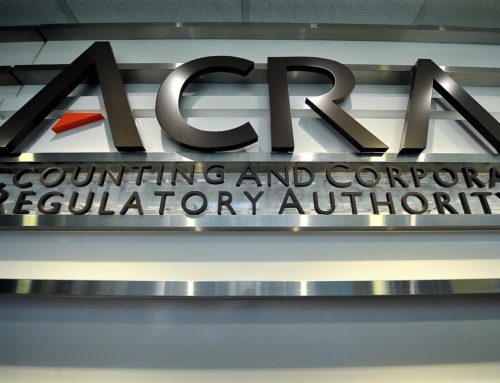The Companies (Amendment) Act 2014 (the “CAA”) was enacted in 2014 to introduce wide-ranging changes to the Companies Act (the “CA”) intended to reduce regulatory burden on companies, provide greater business flexibility and improve the corporate governance landscape in Singapore.
This article focuses on certain key legislative amendments of Phase 1 which will be implemented on 1 July 2015.
Repeal of CA requirement relating to alignment of financial year between parent and subsidiaries
Section 200 of the CA will be repealed to allow the requirement for alignment of financial year end of the parent company and its subsidiaries to be set in accordance with the Accounting Standards.
However, Singapore holding companies are required by the SFRS to ensure that the financial statements of the company and of the subsidiaries used in the preparation of the consolidated financial statements are made up to the same reporting date as the consolidated financial statements.
Introduction of the Twelfth Schedule – “Contents of Directors Statements”
Currently, directors must issue a report that is to be attached to the company’s financial statements, and the report must disclose directors’ benefits.
With the amendments, the existing directors’ report is abolished and the directors’ statement has been enhanced to include the certain mandatory disclosures previously required under the directors’ report, such as, directors’ shareholdings. The statement will accompany the financial statements of the company. The statement must contain the information to set out in the Twelfth Schedule of CA.
Abolition of Financial Assistance Prohibition for Private Companies
Currently, a company (whether private or public) is not allowed to give financial assistance to any person (directly or indirectly) for the purpose of acquiring shares in the company or holding company.
The CAA removes the prohibition for private companies, as shares in private companies are usually closely held, and shareholders have greater control over the company’s decision whether or not to give financial assistance. This amendment will reduce costs for private companies. If necessary, creditors of such companies who wish to seek redress can rely on laws pertaining to breach of directors’ duties and fraudulent and wrongful trading.
With the change, only public companies (essentially, companies incorporated as public companies or which have more than fifty shareholders, whether or not listed in Singapore or elsewhere) and their subsidiaries will be subject to the prohibition on financial assistance.
Determination of requirement to prepare consolidated financial statements to be determined by financial reporting
The CAA introduced a new section 209A comprise of a number of definitions, including “financial statements”, “consolidated financial statements”, “entity”, “parent company” and “subsidiary company”.
The requirement for a parent company to prepare a separate balance sheet has been retained and the balance sheet should be prepared in accordance with the Accounting Standards.
Introduction of “small company” concept for audit exemption
A small company for a particular financial year shall be exempt from audit requirement if it satisfies any 2 of the following criteria for each of the 2 financial years immediately preceding that particular financial year:-
- revenue for each financial year does not exceed S$10m;
- value of gross assets at the end of each financial year does not exceed S$10m; or
- it has at the end of each financial year not more than 50 employees.
The question whether an entity is part of a group is to be decided in accordance with the Accounting Standards.
New procedures for resignation of auditors
Under current CA, an auditor can resign only if he is not the sole auditor or at the general meeting and where a replacement auditor is appointed.
The following new requirements relating to resignation of the auditors of companies before the end of their term of office:
- auditor of a non-public interest company (other than a subsidiary of a public interest company) may resign upon giving a written notice to the company.
- auditor of a public interest company or subsidiary of public interest company must seek consent of ACRA before he may resign, among other things, the reasons for his resignation must be sent to every member of the company.
A replacement auditor must be appointed as soon as possible, any in any case, not more than 3 months from date of resignation.
“Public interest company” means a company which is listed or in the process of issuing debt or equity instruments for trading on a securities exchange in Singapore, or such other company as the Minister may prescribe.
Abolition of Share Warrants
Since 29 December 1967, companies have been prohibited from issuing share warrants. The bearer of a share warrant is entitled to the shares specified in the warrant. There is no requirement for the bearer’s name to be registered in the register of members. There is a transitional arrangement under current CA, for bearers of share warrants issued before 29 December 1967, to convert the warrants to registered shares.
To strengthen transparency companies, the AA phases out any outstanding share warrants by giving bearers two years to surrender the warrants for cancellation and have their names entered in the register of members. Outstanding share warrants that are not surrendered accordingly will be cancelled by the company.









Leave A Comment